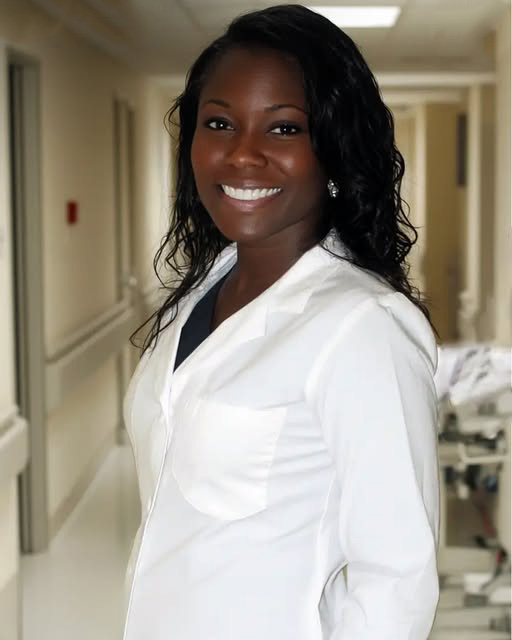From the moment I first stepped into the operating room, I knew I had found my calling. Being a surgeon wasn’t just a career—it was a purpose. After years of grueling training, sleepless nights, and relentless pressure, I had finally secured my place as a full-fledged surgeon at one of the city’s most prestigious hospitals. It was everything I had worked for.
But in a single night, everything changed.
It was well past midnight when the ambulance doors burst open. Paramedics rushed in, pushing a gurney with an unconscious woman. Her skin was pale, her breathing shallow.
“Blunt force trauma to the abdomen,” one of the paramedics reported. “Possible internal bleeding. No ID, no insurance.”
I studied her face—she was young, no older than forty, with deep lines of hardship etched into her sunken cheeks. A homeless woman.
“The ER won’t take her,” a nurse murmured beside me.
Hospital policy was clear: uninsured patients could receive basic care, but anything requiring significant resources—like emergency surgery—needed administrative approval. And at this hour, no one was available to grant it.
“She won’t last another hour,” the paramedic pressed. “She needs surgery now.”
I hesitated for only a moment. I knew the rules. But I also knew that if I didn’t act, she would die.
I made my choice.
“Prep the OR,” I ordered.
The nurses exchanged uncertain glances, but in that moment, I had the authority. And so, we operated.
The surgery lasted nearly three hours. Her spleen had ruptured, and she had lost a dangerous amount of blood. It was a miracle she had even made it to the hospital. But when I closed the final suture, her vitals were stable. I had saved her life.
Relief flooded through me—until the next morning.
As soon as I stepped into the hospital, my name echoed over the intercom.
“Dr. Harrison, report to the main conference room immediately.”
I knew what was coming.
Inside, the entire surgical team had gathered. At the front stood Dr. Langford, the chief of surgery, his face rigid with fury. My stomach tightened.
“Dr. Harrison,” he said sharply, “do you understand what you’ve done?”
I held my head high. “I saved a life.”
His expression darkened. “You cost this hospital thousands of dollars on a surgery for a patient who will never pay a cent! You broke protocol, jeopardized our funding, and made an unauthorized decision.”
I wanted to argue. I wanted to remind him that we were doctors, not businessmen. That we had sworn an oath. That if we started putting a price on human life, we had lost the soul of our profession.
But I never got the chance.
“You’re fired,” he said coldly. “Effective immediately.”
Silence filled the room. My colleagues avoided my gaze. No one spoke up for me. Not a single person.
I felt my face burn with anger, my hands curl into fists. But I refused to let them see my humiliation. Without a word, I turned and walked out—out of the hospital, out of the life I had built.
That night, I lay awake, staring at the ceiling. I had no job, no backup plan, no idea what to do next. But one thing remained certain: I did not regret saving that woman.
The next morning, an unexpected call woke me.
“Dr. Harrison,” a shaky voice said. “It’s Dr. Langford. I—I need your help.”
I almost laughed, thinking it was some kind of cruel joke. But then he said something that sent a chill down my spine.
“It’s my daughter.”
His voice broke as he explained. His daughter, Melany, had been in a terrible accident. Internal bleeding. She needed emergency surgery, but the hospital was overbooked. The best trauma surgeons were already in procedures. The only one available—the only one who could save her—was me.
“I know I don’t deserve to ask this,” he choked out, “but please, Dr. Harrison. I have no one else.”
An hour later, I was back at the hospital—this time, as the only hope for the man who had cast me aside.
Melany’s condition was critical, but my hands were steady. The moment I saw her on the operating table, everything else disappeared. She wasn’t just Langford’s daughter—she was a patient. And patients were my responsibility.
The surgery was a success. When I stepped out of the OR, Langford was waiting in the hallway, his face pale, his eyes red-rimmed.
The moment he saw me, something I never expected happened.
He dropped to his knees.
“Thank you,” he whispered, his voice breaking. “I should never have fired you. I should have—” He swallowed hard, shaking his head. “I should have stood by you. You could have refused, but you didn’t. You saved her life.”
For the first time, he looked at me not as an insubordinate, not as a rule-breaker—but as a doctor. An equal.
A week later, my position was reinstated. Not only that—I was promoted. Langford publicly changed hospital policy, ensuring emergency surgeries for uninsured patients. And the woman I had operated on? She survived. She was given resources, housing, a second chance at life.
I had lost everything for doing what was right. But in the end, doing what was right gave me everything back—and more.
And that is why I will always believe in the oath I took: to heal, to protect, and to save—no matter the cost.
This story was inspired by real events, though names and details have been changed for privacy. If this story moved you, share it with others—because the right choice is rarely the easiest, but it’s always the one worth making.
